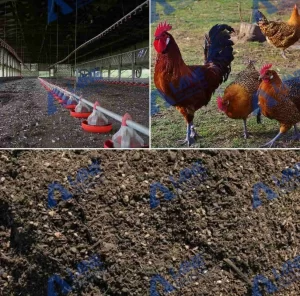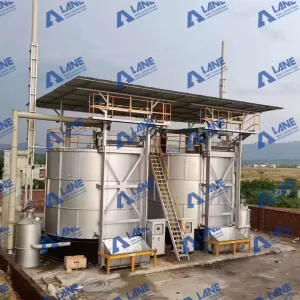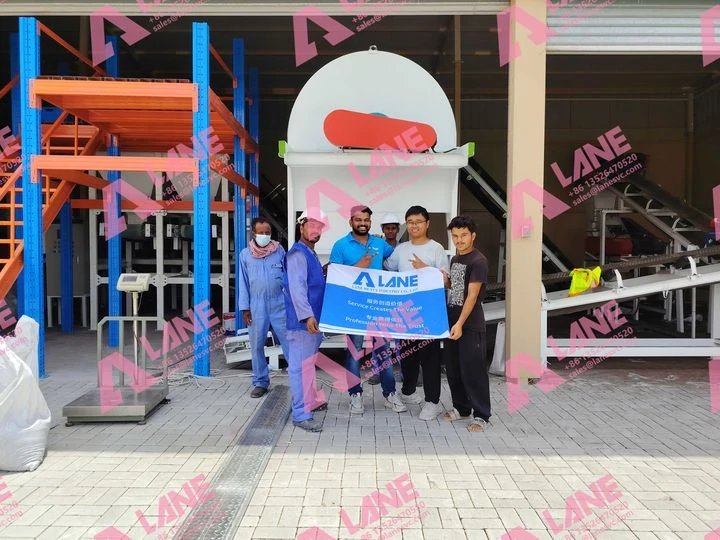As global agriculture continues moving toward sustainability and soil health restoration, the organic manure manufacturing process has become a central technology in environmentally friendly farming.
High-quality organic fertilizer improves soil organic matter, enhances nutrient availability, and reduces dependence on chemical fertilizers that may harm long-term soil fertility. To achieve these benefits consistently, a reliable organic fertilizer production line—combining mature technology, proper process design, and high-quality equipment—is essential.
With more than 20 years of experience in fertilizer production equipment, Lane has emerged as a worldwide leader in the organic manure manufacturing process. The company’s equipment and production line solutions are now operating in over 120 countries, supported by professional engineering teams, strict quality-inspection departments, and an industry-leading five-year after-sales guarantee. These strengths allow Lane to provide global customers with efficient, stable, and high-quality organic fertilizer production lines tailored to their raw materials and capacity demands.
A modern organic manure manufacturing process generally includes raw material pretreatment, fermentation, crushing, mixing, granulation, drying, cooling, screening, coating, and packaging. While the core flow is similar, different customers may use different raw materials—livestock manure, agricultural residues, food waste, sludge, or compost mixtures. Lane’s engineering team routinely customizes full plant solutions to ensure compatibility with these varied feedstocks.
Below is a detailed look at the key steps in the organic manure manufacturing process and the equipment involved.

2.Raw Material Pretreatment
The first step in the organic manure manufacturing process is to adjust raw material moisture and carbon-nitrogen ratio. Proper pretreatment helps ensure smooth fermentation and prevents nutrient loss. Lane provides a complete set of equipment for this stage, including:
Double-stage Crushers for reducing particle size
Twin-shaft Mixers for moisture adjustment and additive blending
Feeding systems for steady material transport
By optimizing pretreatment, Lane ensures that raw materials are fully prepared for aerobic fermentation—the heart of the organic manure manufacturing process.
3.Aerobic Fermentation: The Core of the Production Line
Fermentation determines whether the final product is fully decomposed, safe, and rich in nutrients. Lane provides multiple types of compost turners designed to accelerate the biological reactions that stabilize organic matter.
Common fermentation equipment includes:
Groove type compost turners
Wheeled-compost turners for large-scale plants
These machines supply oxygen, break down organic structures, and maintain proper temperature. During this period, harmful pathogens, parasites, and weed seeds are eliminated. This step is essential for a biologically complete organic manure manufacturing process.

4.Crushing and Mixing After Fermentation
After fermentation, the material becomes loose and crumbly but may still contain fibrous clumps. Lane’s high-efficiency pulverizers further refine the compost to improve its uniformity. A stable particle size distribution makes subsequent granulation more efficient.
Mixing equipment then blends the crushed organic matter with mineral nutrients or beneficial microorganisms, depending on the customer’s final fertilizer formula. By integrating precise mixing technology, Lane ensures the organic manure manufacturing process produces consistent, high-grade organic fertilizer.
5.Granulation: Key to Product Shape and Market Competitiveness
Granulation is one of the most important stages in the organic manure manufacturing process, as it shapes the product and influences market acceptance. Lane offers several types of granulators suited to different materials and capacity ranges:
Disc (pan) granulators – ideal for flexible granule size and stable performance
Rotary drum granulators – designed for medium-to-large capacity lines
New type organic fertilizer granulators – suitable for high-moisture fermentation materials
Granulation increases product density, improves handling, and enhances the fertilizer’s slow-release behavior. Lane’s professional engineering team adjusts parameters such as moisture, rotational speed, and binder content to optimize the production line for each customer’s specific version of the organic manure manufacturing process.
6.Drying, Cooling, Screening, and Coating
Once granulation is complete, materials typically contain more moisture than required for storage. The next essential steps of the organic manure manufacturing process include:
Drying
Lane’s rotary drum dryer removes excess moisture to prevent clumping and microbial regrowth.
Cooling
A counter-flow cooler reduces the temperature of the granules, improving hardness and shelf life.
Screening
Screens classify the granules into acceptable sizes while automatically returning oversized or undersized particles back to the granulation system. This ensures the consistency and quality of the finished fertilizer.
Coating
Coating machines add a protective layer that improves granule flowability and reduces moisture absorption, enhancing product appearance and storage stability.
Together, these steps create a polished and market-ready fertilizer product—a critical output of a professional organic manure manufacturing process.
7.Automatic Packaging
Finally, the granules are weighed, bagged, and sealed through fully automatic packaging systems. Lane’s packaging machines offer fast operation, high accuracy, and excellent reliability, contributing to a streamlined and complete organic manure manufacturing process from raw material to final commercial product.
Lane’s global leadership in the organic manure manufacturing process stems from several undeniable advantages:
1.Over 20 Years of Professional Experience
Lane has been committed to fertilizer machinery manufacturing for more than two decades. This deep technical expertise ensures that every production line—from small farm systems to industrial-scale organic fertilizer plants—operates smoothly and efficiently.
2.Business Coverage in 120+ Countries
Lane’s equipment is exported to more than 120 countries, including regions in Europe, the Middle East, Southeast Asia, Africa, and the Americas. This global reach reflects strong recognition of its technology, quality, and reliability in the organic manure manufacturing process sector.
3.Professional Engineering Team
Lane employs highly skilled mechanical engineers, process engineers, and automation specialists. The team tailors each organic manure manufacturing process to meet customer requirements such as raw material type, factory space, capacity goals, and environmental regulations.
4.Strict Quality-Inspection Department
Every piece of equipment undergoes rigorous testing before shipment. Lane’s quality control ensures durability, efficiency, and safety, maintaining the integrity of each customer’s organic manure manufacturing process.
5.Five-Year After-Sales Guarantee
While many competitors offer only one year of warranty, Lane provides a full five-year after-sales service, including technical support, spare parts, installation guidance, and operational training. This long-term commitment gives customers confidence and minimizes downtime.
Lane’s advantages go beyond equipment manufacturing.
Lane offers complete production line layout drawings, customized process solutions, on-site installation guidance or remote supervision, stable performance with low operating costs, and strong global logistics with fast delivery capability.
With deep understanding of the organic manure manufacturing process, Lane ensures every client receives a high-efficiency solution that supports sustainable agricultural development.

As the world moves toward greener agricultural practices, the organic manure manufacturing process plays a vital role in improving soil quality and reducing environmental impact. Lane, with more than 20 years of expertise, a professional engineering team, strict quality control, global operations in over 120 countries, and a generous five-year after-sales guarantee, stands at the forefront of the organic fertilizer equipment industry. Its advanced production line solutions enable farms, fertilizer producers, and environmental recycling centers to enter the future of sustainable agriculture with confidence and efficiency.
For more details, please feel free to contact us.
Henan Lane Heavy Industry Machinery Technology Co., Ltd.
Email: sales@lanesvc.com
Contact number: +86 13526470520
Whatsapp: +86 13526470520